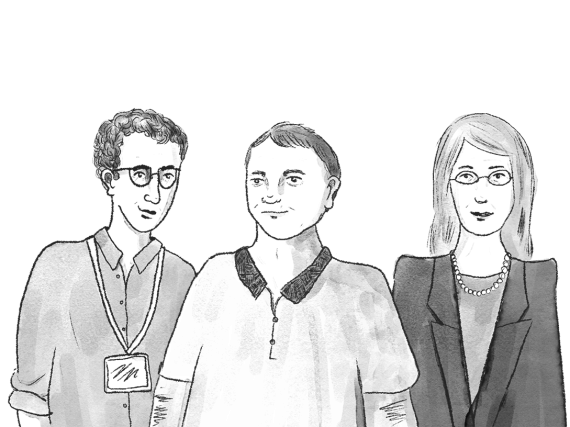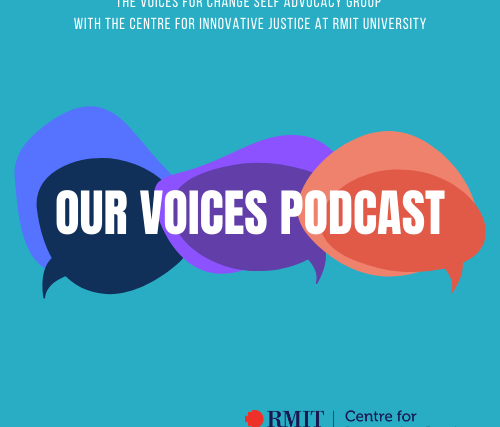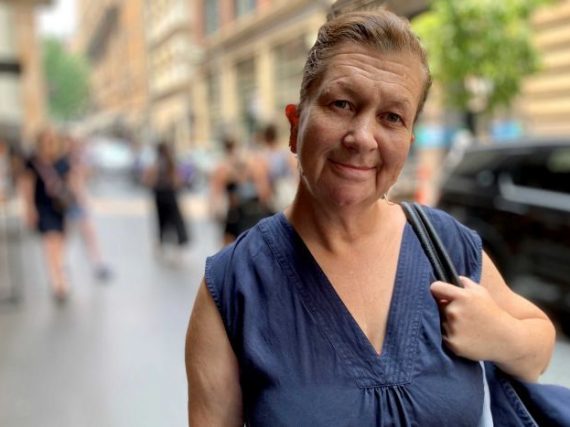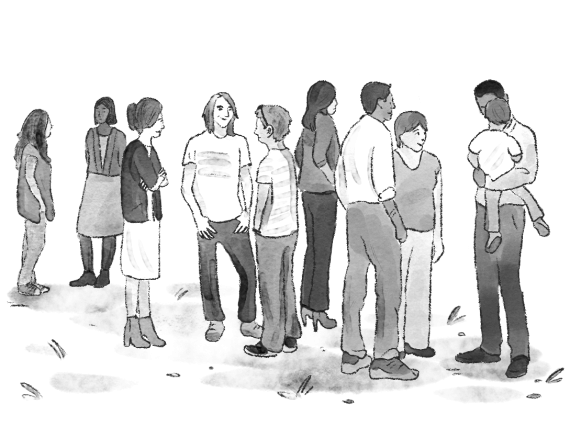Finding my voice and sharing my lived experience
A call for lived experience to inform criminal justice system reform
As an Adviser and Peer Support worker on CIJ’s Supporting Justice project, I have been working with the CIJ on their submission to the Royal Commission into Violence, Abuse, Neglect and Exploitation of People with Disability. I’m looking forward to giving evidence to the Royal Commission later this year when hearings resume into the impact of the criminal justice system on people with disability. As a person with lived experience of the criminal justice system, I’m also one of the founding members of the Voices for Change self-advocacy group for people with acquired brain injury who have survived prison. Voices for Change worked with CIJ to create the Our Voices podcast series to inform a recently completed written submission to the Royal Commission. Both of which you can find through this link.
Our submission, consistent with the CIJ’s commitment to human centred reform of the criminal justice system, calls for a greater investment in supporting the use of lived experience to inform criminal justice system policy, particularly for people with disability in the criminal justice system.
Lived experience is exactly what it suggests, it is a person who has lived through a system rather than learned about it from the outside. Somebody who has lived experience has insights and experiences that someone with learned experience does not. Like most things in life, you can try to understand something but until you’ve experienced it yourself it’s hard to really know it.
As a person with lived experience, I feel that I am living a butterfly life. My experience today and where I find myself is very different to what it has been. I’ve had no police involvement now for 12 years, but I’ve also lived a life where I’ve carried the labels of victim of crime, offender, prisoner and all sorts of other labels. While I continue to live life as a person with a ‘criminal record’ I can live and see things differently because I’m not the same person I used to be. If I was, I wouldn’t be writing to you now. After many years, I’ve found my voice to speak out about some of the things that I survived, but I’m mindful also of the suffering of everyone who experiences the justice system as offenders, victims, police officers, lawyers, judicial and prison officers. Everyone in the criminal justice system experiences a level of trauma because we are a part of a system that is failing people and the community. It is defined by risk, risk of violence and trauma, not knowing what you’re going to get when you go to work or walk into a court room. It should be working better, it should be about justice and restorative outcomes.
People with lived experience can offer insights into how a system operates in ways that a person with learned experience cannot. Including lived experience in policy design and implementation has been an approach used for many years in other sectors and was recently highlighted by the Victorian Royal Commission into Victoria’s Mental Health System in their interim report. I worked with CIJ on the development of supportingjustice.net and supported the engagement of a number of people with lived experience to contribute to the design and functionality of the website’s resources. While it has gained momentum in the United Kingdom, it is still unusual to see lived experience inform criminal justice policy here in Australia.
Currently, the way people are treated in the criminal justice system, particularly those people with poorly understood disability and mental ill-health, creates further harm. The immediate result is push-back and reaction that can create an unsafe environment for everyone. Some of the men from Voices for Change speak about their experiences in police cells and prisons throughout the Our Voices podcast. The long-term result reinforces patterns of behaviour that keep people on the path they are on. If you don’t experience respect and support it’s highly likely that you’ll continue on the offending cycle you’re on. It makes everybody’s job harder and creates much higher risk. Lived experience involvement has the capacity to improve this situation. By involving people with empathy and understanding in the design and implementation of criminal justice policy, you are creating better outcomes for people in prison, as well as creating better workplaces for justice system staff.
So much of the criminal justice system is defined by an us vs them approach. It defines the court room and the prison yards. There’s not usually a relationship or lines of communication between those who operate the system and those who are subject to it. Lived experience provides an opportunity to bridge this gap. Introducing lived experience into policy design and service delivery challenges attitudes that dehumanise. By introducing people with lived experience and having them contribute in a meaningful way, it helps create opportunities to challenge attitudes, the general blanket thinking that people have toward offenders. It also creates pathways into employment for people who want to contribute to changing a system and help others who are living through what they have overcome. My hope is that greater use of lived experience will go a long way to creating the necessary cultural change in the way we think about people subject to the criminal justice system, and how they can help create change.
Dorothy Armstrong, Adviser & Peer Support Worker
With Michael Haralambous, Senior Adviser, Research and Advocacy




